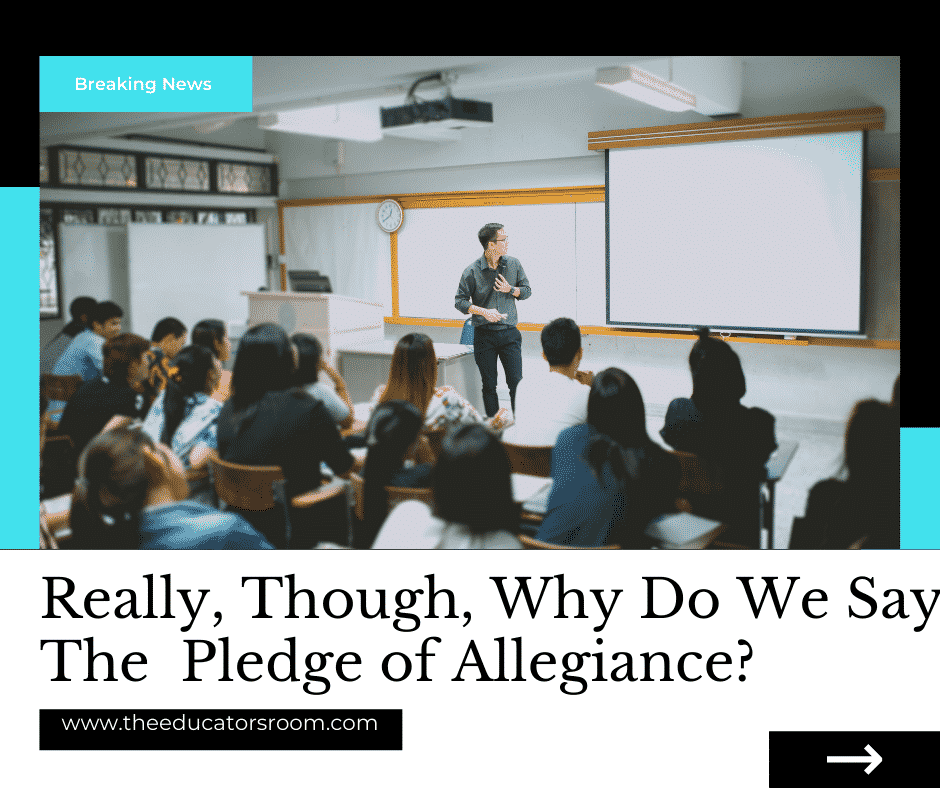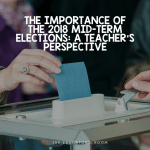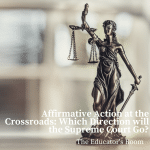The Resurgence of the Pledge
In the past, my school has been inconsistent about saying the pledge of allegiance. We’ve had it as a part of our video announcements with limited fidelity, and definitely not daily. I have only hazy memories of saying it as a student, perhaps on occasion in elementary school.
This year, however, we are saying it every single morning, prompted by the loudspeaker at 7:42 am.
In our school, you are just as likely to see a thin blue line hat as a Black Lives Matter mask, and the tension is palpable. Many in our community are not happy with the state has mask and vaccine mandates. The mania around Critical Race Theory has also added to the “us vs them” mentality.
The timing of this new pledge routine seems like it has to be related to these “freedom” controversies. So, I was curious what the law actually says. Why do we say the pledge in schools? Is it law or just an antiquated habit? And, perhaps most importantly, do we all really have to say it?
Washington State Law
Sure enough, according to our state’s law, yes, we do have to say it, every day. According to RCW 28.A.230.140, flags in good condition must be displayed at every public school. The board of directors shall cause “appropriate flag exercises to be held in each classroom at the beginning of the school day.” In case you were confused on what “appropriate flag exercises” might be, the law then goes on to quote the pledge in its entirety.
I was honestly surprised to see this practice codified, though we do have protections against punishment for noncompliance. According to our law, “Students not reciting the pledge shall maintain a respectful silence,” which is in line with precedent.
The 1943 case West Virginia State Board of Education v. Barnette decided that students can’t be forced to say the pledge, because that would be a violation of their first amendment rights.
Months before Barnette, the Washington Supreme court found that “that true patriotism cannot be compelled but must be felt from within…and an enforced gesture of word of respect is of no benefit to anyone.”
It does seem glaringly ironic to force students to say a pledge that honors the values of liberty and justice for all. When my students all stand and turn toward the flag and speak in unison, I definitely don’t think of “freedom.”
Yet, here we are.
A Brief History
If we are legally obligated to say (or at least give the opportunity to say) the pledge, it’s important to understand its origins. As with most parts of our history, the pledge is rooted in exclusionary nationalism.
It was originally published in 1892 for the “400th anniversary of Christopher Columbus’ arrival in the Americas. Its author, Francis Bellamy, complained of “every alien immigrant of inferior race” who found a home in the United States.”
So, right from the start, it’s clear the pledge has colonizing and xenophobic ties.
The “under god” portion of the pledge, perhaps the most controversial line for a country that purports to value the separation of church and state, wasn’t added until 1954. During the height of the Cold War, as a way to separate the US from the officially atheist Soviet Union.
Essentially, the pledge is a rote “America first” chant with no distinction between allegiance and blind nationalism.
My Classroom, My Choice
I am well aware that the US has not achieved “liberty and justice for all,” and it feels disingenuous to blindly pledge that we have. As an atheist, the “under God” is a stark reminder that, as much as we claim to have religious freedom, Christianity dominates our social and political life.
So far this year, when it comes on over the loudspeaker, I make myself busy with other things. My students stand and say it, while I take attendance or pretend to check an urgent email.
No one has commented on my silence yet, perhaps because I conveniently have a standing desk. But, it’s only a matter of time before we have that conversation in my first-period class. I just hope students who might be questioning why we stand and say these 31 words, will notice my choice and recognize they have the freedom to do the same. That’s what the United States is supposedly all about, right?







I taught at a school that had a predominantly Black student body. We usually only did the pledge during assemblies. After the first year of looking around at all of my students I stopped saying the pledge and stood in silence. My students did not have liberty or justice in their lives and I could not say the pledge any more.
The ACLU has fought many battles about this and the outcome has always been that you can’t force anyone to say the pledge.